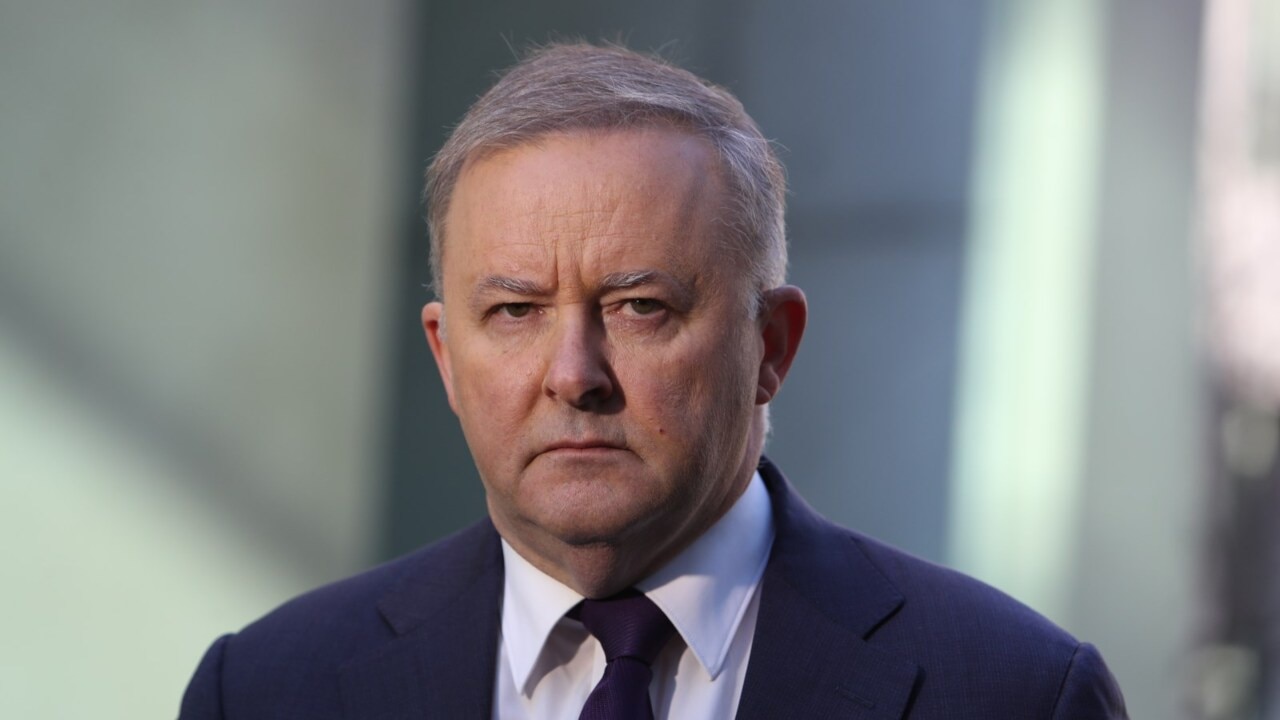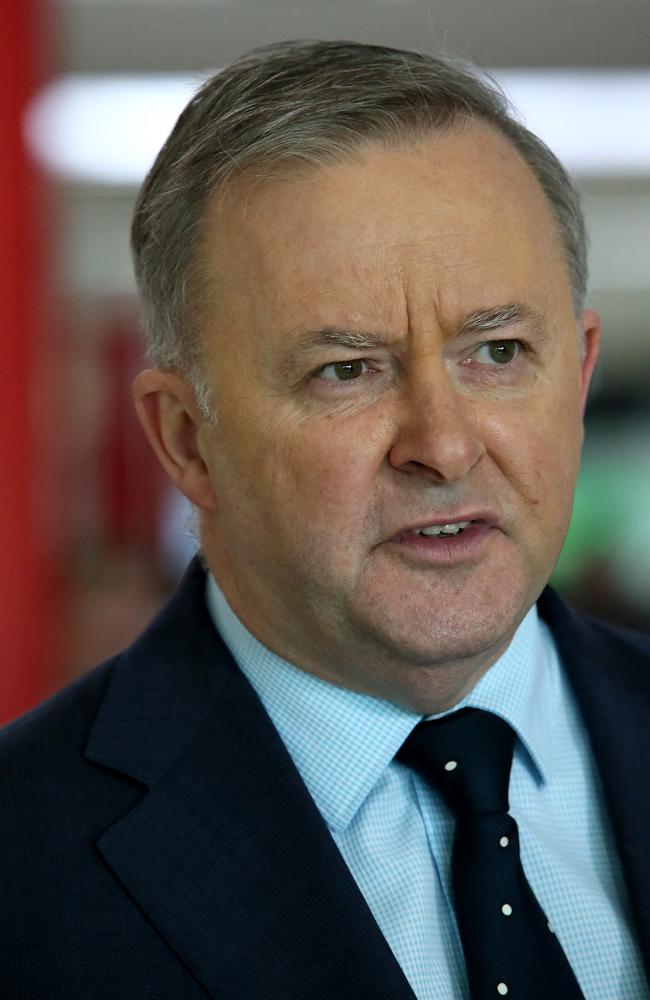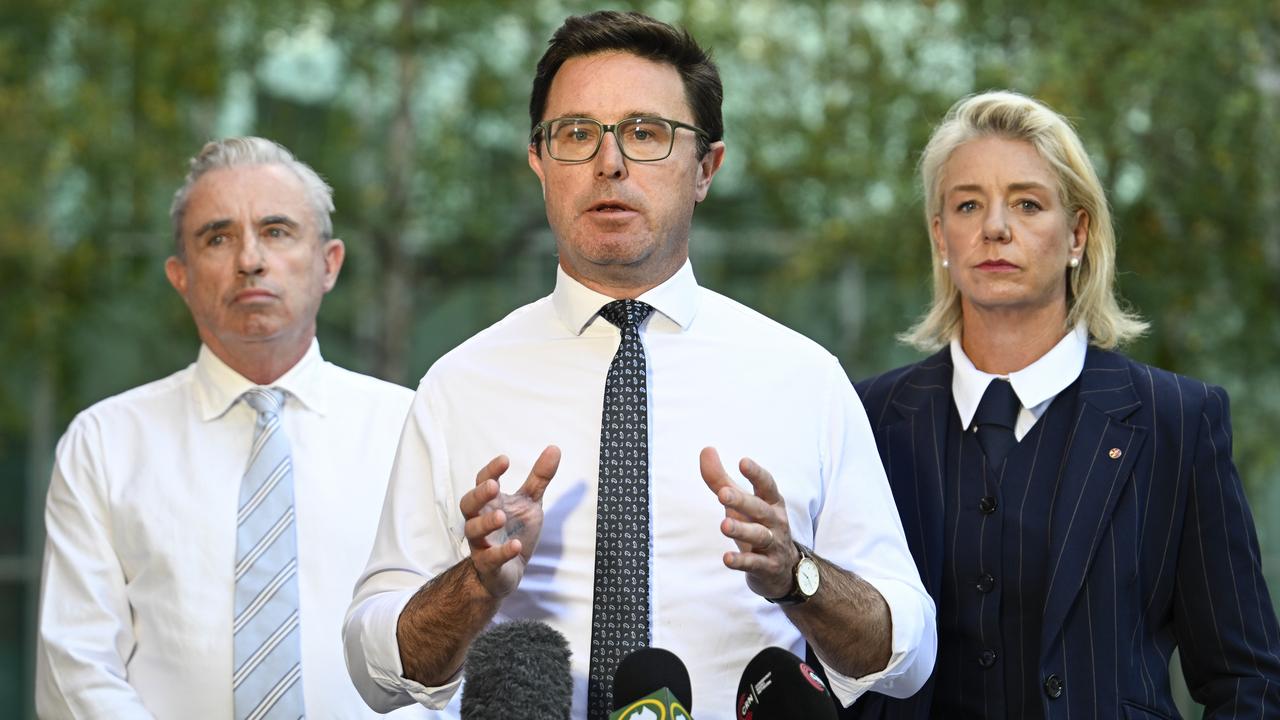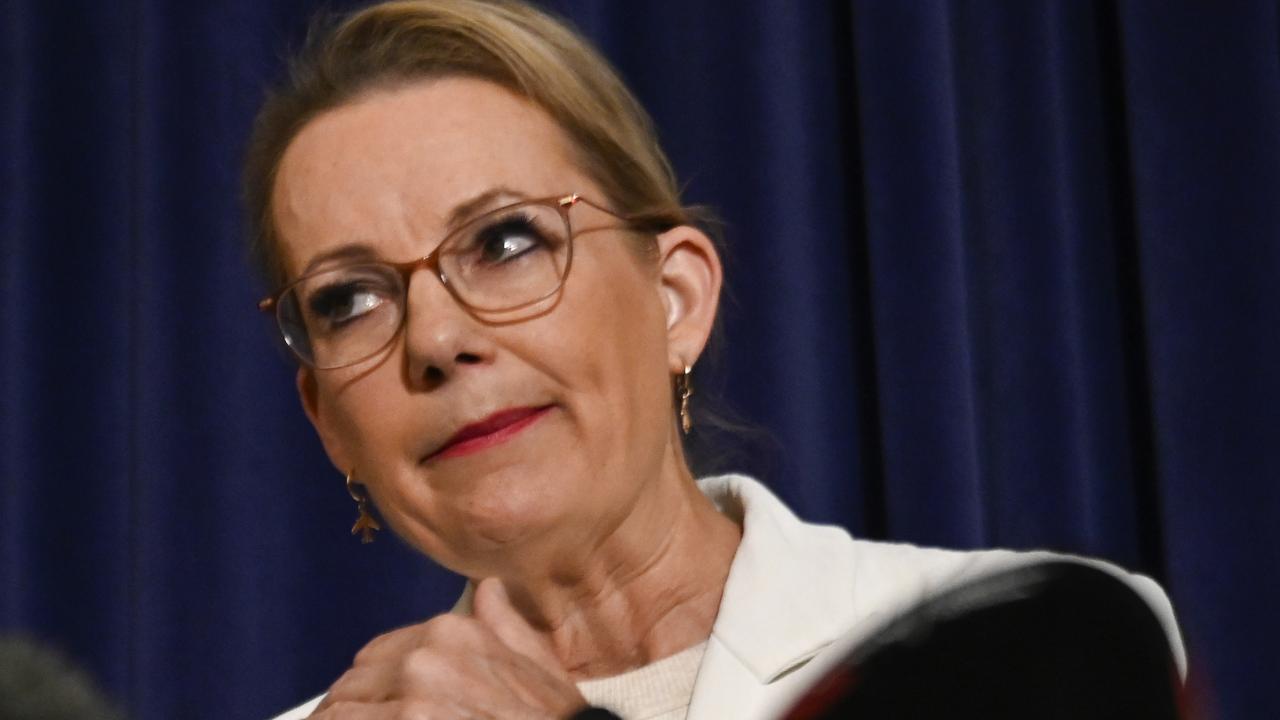Sharri Markson: Anthony Albanese’s taxing dilemma
If the ALP believed its own rhetoric, it would support tax cuts as stimulus, writes Sharri Markson.

Anthony Albanese leads a party mired in deep policy predicaments that has shown itself to be ideologically divided and has lost the trust and faith of voters.
It is against this plight that Albanese begins the task of repositioning Labor in the post-Shorten era.

His starting point is the crucial decision of whether to support the government’s $158 billion income tax cut package, which is the first legislative item on the agenda when parliament returns in a little over a week’s time.
Albanese has already come under pressure from senior and close colleagues on both sides of this debate.
There is hostility in caucus and shadow cabinet to backing the third, and even the second, tranche of cuts.
The third tranche lowers the tax rate on workers’ earnings between $45,000 to $200,000 per year from 32.5 to 30 per cent from 2024-25.
Economists argue this simply is a way to fix bracket creep — the insidious process by which inflation bumps people into higher tax brackets.
“We took one of the biggest taxing agendas ever to a federal election and then to pretend to people we are the party of low taxes and back in the Liberal Party’s cuts, it’s just not credible for us,” one Labor MP said.
Equally, there are MPs who do not want to kick off their unexpected term in opposition by voting against tax relief for hardworking Australians.
They accept this was a central plank of Scott Morrison’s election platform, and that of all issues, this is one where he has a mandate.
Albanese is understood to be modelling his style of leadership on Bob Hawke, where shadow cabinet was at the core of decision-making, and policy positions were thrashed out through debate.
This method is, in part, a reaction to Bill Shorten’s modus operandi where a small leadership team would make important policy decisions and then inform the rest of the team, whose voices were never considered.
Albanese could have used his early authority as Labor leader to make it clear he had a view one way or another on whether to pass the tax cut package.
He chose not do that.
As a result, there is the potential for the divisions within Labor on this issue to erupt.
Finding a policy solution on whether to pass the government’s tax cut package that satisfies the two opposing forces within Labor is going to be a herculean effort for Albanese.
“There’s a camp of people who are up for the fight and (up for a) disagreement about these tax cuts and those who say this is all too hard,” a Labor MP said.
“People like Jim (Chalmers) are up for having the fight, knowing we are three years out.”
As I understand it, Albanese himself has not come to a personal decision about whether Labor should vote for or against the tax cut package, and has not expressed a view to his colleagues.
He has, however, made it clear that Labor will abandon the class warfare rhetoric and policies.
Instead, the party will re-embrace the notion of aspiration.

Driving home this point, Albanese said last night on my Sky program that he does not think workers earning $200,000 were the “top end of town” as Shorten claimed.
His concerns about giving tax cuts to workers earning up to $200,000 is based, instead, on whether it’s appropriate for the economic climate in six years time and whether reducing tax revenue would mean cuts to services.
Albanese does not accept the position of some of his colleagues that Morrison has a clear mandate for his tax cut package.
He argues Labor’s primary vote of 33 per cent was higher than the Liberal Party’s 28 per cent at the federal election, and thus, Morrison cannot claim a mandate.
The Coalition, of course, achieved a primary of 41 per cent.
It’s worth noting that Labor has only won one out of the past nine elections outright, in 2007.
The interesting thing about the 2007 election that makes it vastly different from Labor’s campaigns since, is that the policies of both parties were similar.
There were so few differences between the platform Rudd and Howard took to the polls, with both racing each other to the centre.
Rudd’s centrist stance, where he pledged fiscal conservatism, moved to the radical left under subsequent leaders, Julia Gillard and Shorten.
Shorten, who was from the right faction, ended up being a radical left leader.
Albo, from the left faction, needs to return Labor to the centre to re-appeal to the public.
Labor needs to re-evaluate its policy positions across the board, from border security to the environment, to foreign policy and, most crucially, its economic policy.
Strengthening the case for the tax cuts is the uncertain economic outlook.
Once again, the RBA this week warned there would be further rate cuts in the coming months, likely in July.
In the US, rates remained steady this week but the Federal Reserve indicated they could fall if economic risks escalated and inflation remained low.
The fears of a downturn are precisely why Labor needs to support the income tax cuts, allowing them to work as a stimulus in the economy.
Albo should back up his centrist rhetoric by abandoning the redistributive agenda that would hurt pensioners, affect retirement plans and create further uncertainty in the housing market at a time it’s softening.
The only place to start is to pass the government’s tax cuts.


